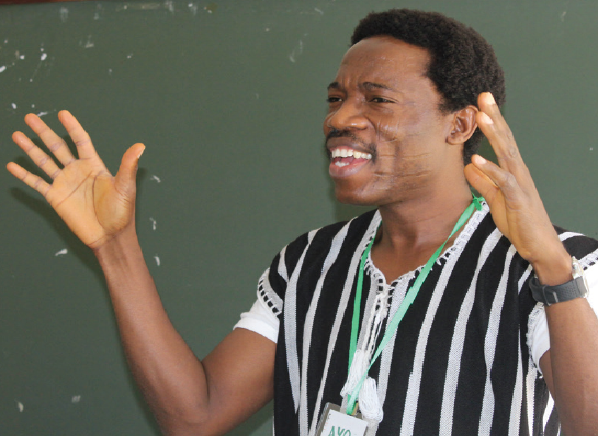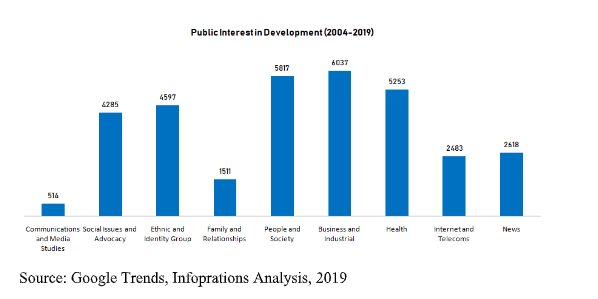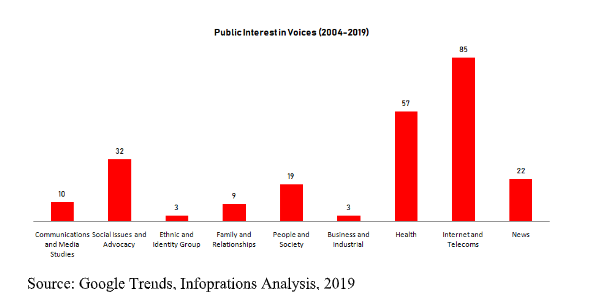
Since the emergence of sustainable development as a concept and practice, scholars, professionals and businesses have been working toward making living on earth and in water beneficial to the present creatures without jeopardising the chances of the future creatures of using the same resources with more advanced techniques. Ayobami Ojebode, a professor of Development Communication at the University of Ibadan, is one of the scholars who have conducted and still conducting significant studies with a view of revealing various pain points associated with the roads towards sustainable development in Africa.
Before 2002, the year he earned his PhD in Development Communication, and after the certification, has been teaching and researching issues within political, economic, social and environmental components of sustainable development. For more than two decades, his interest in teaching and researching has been exclusively on finding solutions that resonate with the students, C (corporate) and F (functional) levels executives in industries, and public administrators in Nigeria and other African countries.

Searched Voices for Sustainable Radio Usage
As a professor of Development Communication with a special bias for radio for communication purposes, he has searched and found that there are challenges impacting enabling policies and legal environment for community radio in Nigeria. According to him, “licensing community radio stations remains difficult under democracy as it was in the military period.” On the content production, a in 2008 publication, Ojebode found that while radio stations used significant time and energy producing and broadcasting development programmes, the listeners in the rural areas mostly avoided such programmes and spent their time and batteries on a strange genre of programmes dubbed “bizarre occurrence’ programmes. A year later, he discovered that a very minute proportion of news deals with rural areas and rural issues, describing the coverage of the issues as “one-way information to and not from rural people.”
Register for Tekedia Mini-MBA edition 17 (June 9 – Sept 6, 2025) today for early bird discounts. Do annual for access to Blucera.com.
Tekedia AI in Business Masterclass opens registrations.
Join Tekedia Capital Syndicate and co-invest in great global startups.
Register to become a better CEO or Director with Tekedia CEO & Director Program.
Expanding his searching hypothesis, the diversity consciousness among the Delta State Broadcasting Service and the British Broadcasting Service was explored. Professor Ojebode found that different categories of fear propel the determination to reflect diversity at both stations. For instance, his analysis shows the challenge of balancing diversity with competence in staff recruitment as parts of the problems in managing diversity.
In a study published in 2012, his intent was to know the extent to which people receive information about the sick cell disorder through radio. The study reveals that workers in the studied radio station did not aware of the SCD prevalence. With his colleague, Professor Ojebode notes that “there is the need for non-media forces to call media attention to and in fact use media to educate people about SCD in Nigeria. Nigeria government also must show commitment to SCD education.”
In a study that could be described as mind-blowing 10 years after his PhD, Professor Ojebode and other colleagues discovered that despite that RSTD, a radio in Benin Republic is not a truly participatory radio, most listeners were content with being listeners and unaware that community people could be involved in radio programme making. “We wonder whether what matters about a community radio is not its ability to key into the aspirations, sentiments and beliefs of the community rather than how participatory it is.”
Searched Voices for Sustainable Governance
Over the years, his interest within sustainable governance has largely been on understanding various issues in journalism, public communication and civic engagement. Till date, he remains one of the communication and media scholars who have researched the issues around the full implementation of the Freedom of Information Act in Nigeria. Apart from conducting researches, he has also spoke at a number of fora and workshops, warning media practitioners and Nigerians on the danger of fake news. “There is a chasm between law making and governance on the one hand, and the daily concerns of the average citizen on the other. It is probable that more than half of Nigerians are unaware that a bill became law which can protect their interests. Therefore, for the Act to truly serve the poor and the illiterate, those at the lowest rung of the political and economic power, there is a need for massive awareness creation.”
As Nigeria continues battling insecurity, his searching hypothesis has equally been extended to the security component of sustainable development. In collaboration with other researchers in Nigeria and Latin America, he has researched the place of community policing in sustainable security in Nigeria. On September 5, 2019 Professor Ayobami Ojebode will be speaking on, “In search of muted voices for the mirage named development.” This is the title of his inaugural lecture at the University of Ibadan. All roads are expected to lead to the Lakeside Lecture Theatre, Faculty of Science, venue of the lecture.
Among his students, the university community and captains of the industries who are expected at the lecture, the expectation is that the Igboora born professor of Development Communication will dissect the stumbling blocks for the realisation of sustainable development in Nigeria. This is imperative as public interest in development issues continue soars while human and business voices towards solving varied socioeconomic and political problems across the country remain low, analysis suggests.





Wow! You have written the entire inaugural lecture …
This is a fraction of what I have. I believe prospective attendees will gain more during the lecture.
Our prof. deserves more! ASM, well done!
Yes,you’ve written about the inaugural lecture,but you’ve not written what would be dished out there.No,not by a long chalk.
Prof.Ojebode is world-class,to put it mildly!
The proof of the pudding would be in the lecture itself.See you there!